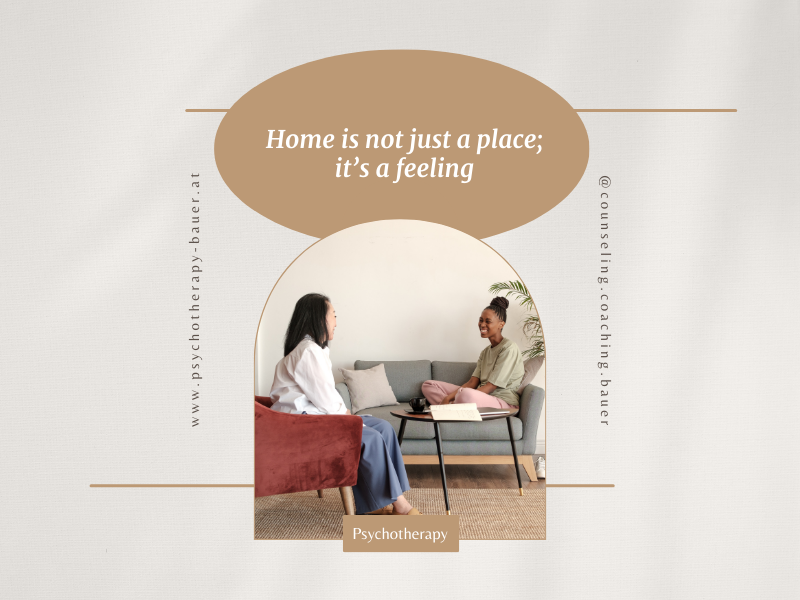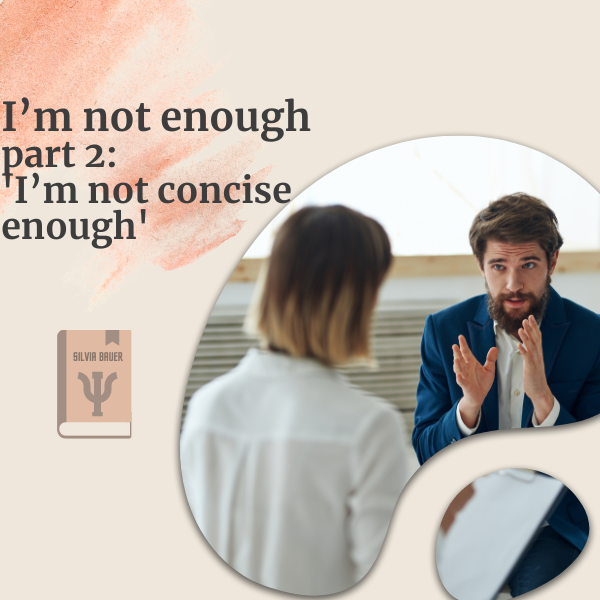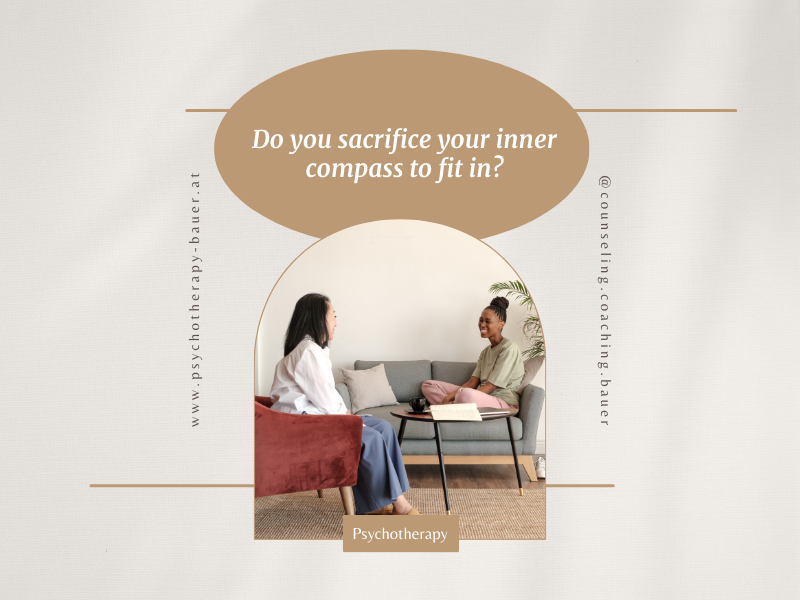Are you driving home for Christmas?
Finding the right place to spend Christmas can be a difficult choice in Expat life

So, in case you do have some considerations about where to spend Christmas, this blog is for you. In case you’re an Expat and are maybe living with your partner in Austria and your family is abroad, this might be a topic for you. Also, when you’re living not that far from your family but spending time with them has been challenging for other reasons, you might well consider some advanced-planning regarding how to spend the holiday season.
So, let’s dive into typical considerations that come up while planning Christmas holidays, untangle them and clarify priorities. Sometimes looking at a topic from a different perspective is helpful, and some solutions pop up out of nowhere. Beyond this, I want to reassure you that many people are struggling with the Christmas season for various reasons, and you’re not alone. Although it’s such a merry and beautiful time from the outside, I sometimes wonder if it’s just been invented to collect and amplify all the relational struggles we carry around all year.
I will dive into some common struggles you might identify with and outline them.
Common Christmas dilemma
Are you flying home for Christmas – or staying with your partner?
For most international couples, this is one conflict that comes up like a natural law. Whereas in-country couples usually divide the holidays within the family, it does look so much more complicated when there are 10-hour flights between family houses and more.
Rewatching the video "Driving Home for Christmas," there's a car driving happily and smoothly over snow-filled streets. Yeah, imagining those weather circumstances, driving up from London to the east midlands, there were plenty of cars stuck on the hills and desperate people feeling lost out in the cold. Luckily, the weather around Christmas in middle Europe is usually quite warm, but it's not the easiest travel circumstance anywhere – with or without COVID restrictions.
Consequently, in many cases, it’s just not doable to visit two families in two different countries or even continents for Christmas. And now there’s a challenge to address.
All I can tell you is: don’t leave your partner behind. Though we’ve been talking about physical distance for a while, that’s not what I mean. Don’t leave them behind in working out the best way for both of you.
There’s no obvious solution. There’s no right or wrong. There’s no should be. There’s just one basic rule that’s good for your relationship: take your time to work it out together. Although practical restrictions must be taken into account, don’t get hung up on them. It’s a complex topic with plenty of joyful and painful memories, plenty of in-laws as stakeholders, and meaningful things you want to take into account back home, like pets or job considerations.
It looks like a lot to juggle, and indeed it is. But I’m positive you've managed to work through equally complex decisions before. The only speciality about Christmas is usually that people don’t identify it as such – a complex challenge to work through—but rather get hung up on their traditions. For the sake of your relationship, it’s certainly helpful to be as open as possible about your wishes and dislikes.
There's a way to create common sense by writing down what you don't want to miss out on and issues that are negotiable. In any case, it's helpful to explore your wishes, emotions and expectations for a while before coming up with a solution. This way, you can be more creative and are more likely to come up with a solution that’s a good fit.
Plus, as you may know, creative solutions don’t always show up in time. So, it’s certainly helpful timewise not to put too much pressure on yourself. Yes, Christmas is popping up in about 4 weeks. And it won’t be the last one. If you can work out a solution for this year that’s better than the last one, it's a step in the right direction. If you can’t come up with any improvement, it might be worth taking a look at your relationship conflict skills during the year to have them sorted for next Christmas. Remember, Christmas is just like a special exam in relationships and emotional skills. There’s a life outside of exam dates.
Are you flying home for Christmas – and how will you cope with your parents?
This question is not related to the physical distance to your parents' house but rather to your relationship with them. Many times when you're living far away and have a very different everyday life from your parents, it's likely to struggle a bit when catching up with them and maybe living together for a while. Many times, we imagine “coming home” and being back in childhood. Christmas traditions activate memories and “make us emotional”. In this environment, it can be hard not to lose your grown-up self.
More often than not, we fall back into old patterns and forget about reparenting ourselves.
Maybe you’re familiar with the idea of letting your parents retire. Yeah, and even if we agree with this concept in everyday life, many times we’re drawn to forgetting it during the holiday season. Unfortunately, that accelerates a funny power shift that makes the relationship with our parents at least a little bit uncomfortable.
So, I highly recommend staying in charge of taking care of your inner child during the holiday season – even if the familiar smell or your parents' drinking might pose a challenge.
Some ways might help you take care of your inner child:
● Keep in touch with the people who usually help you take care of yourself; they can be friends as well as therapists (Yes, we're used to working with difficulties around the holiday season)
● Keep structures alive that usually resources you (meditating, sports and walking are even allowed on Christmas – no matter the weather)
● Setting boundaries doesn’t hurt anyone – especially if you communicate them well (you don’t have to eat what you don’t like, not even on Christmas – and it gets easier if you get involved in planning the meal)
● Consider how long you’re able to take care of yourself at your parents’ place. This is a particularly tricky one because it may shift tremendously depending on what you’re working through in your personal life. If you’re just working through attachment trauma, you might not have the capacity for your parents you were used to. And it doesn’t have to stay this way; in fact, it rarely does. But for now, it’s reasonable to take your current boundaries into account – even if that might not fulfil your parents’ (or others’) expectations of how Christmas “should” be and has been. Imagine that you’re not well at the time and have to limit your celebrations. Sounds logical, right?
Are you flying home for Christmas – or staying with your dog (or cat, bunny, or book)?
Believe it or not, flying home for Christmas is not the only option, nor does it have to be the best one. There are several different reasons why it may be worth considering spending the holiday season at your place or elsewhere, all by yourself. Yeah, well, we’re living in a Christian country, and people tend to keep gathering during those days. That’s why I recommend planning: Christmas is not a day like any other one, and even if you wish it would disappear, it’s very unlikely not to impact you. Christmas decorations and the behaviour of people around them will certainly activate memories – whether you like it or not. So, there may be good reasons to consider alternatives to travelling to your family's house for the Christmas days, e.g.,
● Family members passed away
● Your hometown “passed away”
● You’re currently having a hard time with your family
● You have a dog or other circumstances that make it inconvenient or impossible to fly
● Taking time and money limitations into account, it’s highly unreasonable to fly over
● You prefer spending the holidays with people nearby
● You’re working during the Christmas days
If you can relate to one of the reasons, you can be sure that you’re not “the only” one. Especially coming from a pretty traditional family background, it can feel like a very lonely place to be when you’re struggling and reconsidering Christmas traditions. But be sure—maybe beyond the imagination of your family of origin, there are people in the world who share your struggles with the holiday season.
As usual, when solving a problem, it’s a good idea to relax and take your time to come up with a plan. It’s certainly possible to Google alternatives for spending the Christmas days. And I put together some more ideas. But first and foremost, please take it seriously. The Christmas holidays are the summit of social and mental crises because people refuse to have an honest look at what’s going to come up. Although it’s just a few days, it can be hard. So, please plan ahead and if in any way possible, connect with people.
Here are some ideas of how to spend great Christmas days without your family of origin:
● Organize to send Christmas cards to friends and family in advance
● As dogs walk every day, meet with people and, if possible, other dogs for walking
● Plan what social activities you want to join during the holidays: theatre, cinema, church, concert, circus
● Decorate your home in any way that suits you. Make sure it feels comfortable, light and warm.
● Join people, although your “usual” friends might be out of town or occupied with their relatives – let people know that you’ll be around on Christmas and connect
● Most Expat communities have some kind of program planned for the holidays; if you haven’t joined them yet, that may be a start
● Living in Vienna, it's very obvious, but maybe in other places it's good to have a reminder: there are plenty of other people around who are not celebrating Christmas and are open to meeting.
So, I hope you find some inspiration there. I want to remind and encourage you to create a "good enough" Christmas season for yourself. And I want to emphasize this "good enough" because, in many cases, the expectations of having a magical Christmastime end up being very disappointing. So, please remember, "Perfect is the enemy of good". Apart from in Hallmark movies, there's no such thing as a “perfect Christmas”. It’s a very real season, very real people are coming together, and their problems don’t disappear magically.
Conclusion
In the holiday season, the decision of where to spend Christmas can be a complex challenge, especially for expats navigating the delicate balance between partner, family, and personal needs. As you consider the common dilemmas that arise during this time, remember that there is no one-size-fits-all solution. Whether you're grappling with the distance between family homes, managing dynamics with your parents, or contemplating spending the holidays solo or with friends, the key lies in open communication and thoughtful planning. Take the time to explore your wishes, emotions, and expectations. Be creative in finding solutions and, most importantly, be patient with yourself and your loved ones. Christmas is not a perfect exam; it's an opportunity for growth, understanding, and creating a "good enough" holiday season that aligns with your unique needs. If you find yourself needing support or guidance in navigating these complexities, don't hesitate to reach out to me, or to a trusted friend. Remember, you're not alone in facing the challenges that the holiday season can bring. I wish you a thoughtful and fulfilling holiday season ahead.












